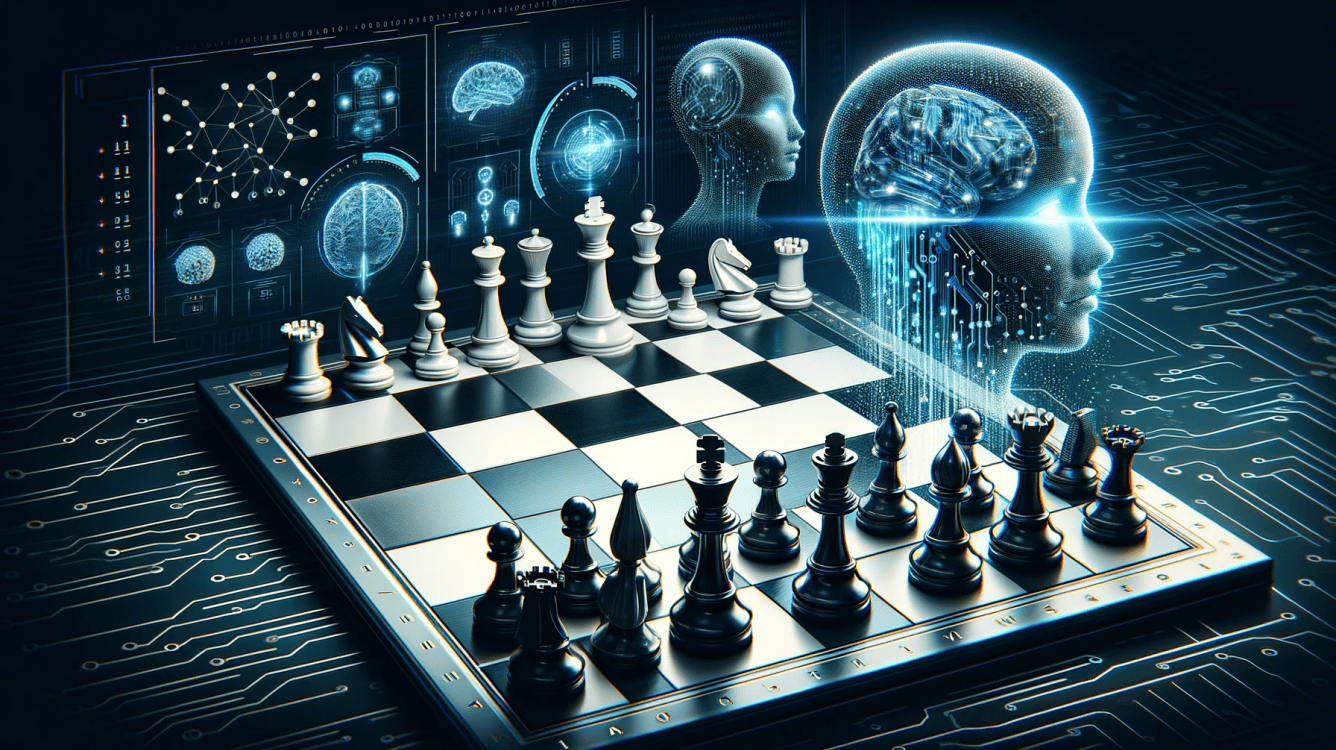
Checkmate by Algorithm: The Rise of AI in the World of Chess
Chess and artificial intelligence (AI) are an intriguing duo, a synthesis of tradition and innovation. While chess tests the limits of human strategy, AI represents the cutting edge of technology, challenging our notions of intellect and creativity.
The collaboration between AI and chess has led to revolutionary advances in the game, with machines now capable of astonishing levels of play. This partnership is reshaping the landscape of chess, opening up new possibilities for analysis, learning, and competition.
Chess has long been a measure of human intellectual prowess, a battleground where strategic depth, foresight, and ingenuity reign supreme. Enter artificial intelligence (AI), a technological marvel that has reshaped countless industries and activities. In the realm of chess, AI's influence has been particularly significant, forever altering how the game is played, studied, and even perceived. This convergence of ancient sport and modern computation is not just a testament to human innovation; it's a fascinating chapter in the ongoing narrative of man versus machine.
AI's foray into chess echoes the broader narrative of its integration into human activities, where it augments and amplifies our capabilities. The history of AI in chess is marked by milestones that have expanded our conception of what machines can do. From the early days of basic chess programs to the sophisticated engines that now dominate the landscape, AI has progressed in leaps and bounds. It's a journey from simplicity to complexity, from mechanical calculation to something that, at times, appears to border on intuition.
With the introduction of IBM's Deep Blue, the potential for AI in chess became undeniable. This watershed moment was not the end but rather the beginning of AI's ascendance in the game. Modern chess engines, employing neural networks and deep learning, now operate with a prowess that is, frankly, superhuman. Take AlphaZero, for instance, a program that taught itself chess from scratch and went on to defeat world-leading engines. Its style, characterized by aggressive pawn play and a penchant for long-term strategic sacrifice, has injected a dose of creativity into the game that many thought was the exclusive domain of human intellect.
The benefits of AI in chess are multifaceted. It serves as an inexhaustible opponent, ready to play any time of day, able to emulate any style, and offering endless scenarios for practice. Its analytical precision is employed by amateurs and grandmasters alike, dissecting games to reveal nuances and strategic insights previously obscured. Beyond the individual, AI opens up the world of high-level chess to a broader audience, offering tools and teaching that were once the privilege of the few.
AI's reach extends beyond personal practice and into the classroom. Educational platforms harness its analytical power to tailor learning experiences, adapting to the strengths and weaknesses of students. This adaptive learning has the potential to cultivate chess talent from unexpected quarters, breaking down geographical and socioeconomic barriers to entry.
The spectator experience has been similarly enhanced. AI provides a real-time window into the tactical and strategic complexities of high-stakes games, making the spectator a more informed and engaged participant. During tournaments, AI-driven projections and commentary are not just add-ons; they are integral to the experience, enriching the understanding of laypeople and aficionados alike.
As AI's capabilities continue to expand, so too does its role in the philosophical discourse of chess. The emergence of AI-generated moves that defy conventional wisdom challenges traditional notions of creativity and intuition. While some fear that AI may diminish the human element of chess, the reality is quite the contrary. AI has become a catalyst for human growth, pushing players to new heights and unveiling layers of complexity within this ancient game.
In summary, AI's integration into chess is a microcosm of its broader impact on society—a powerful tool that, when harnessed appropriately, can elevate human endeavor to previously unimagined levels. It's a partnership that enhances, rather than replaces, the human spirit, providing a compelling glimpse into the potential for harmonious coexistence between human intelligence and artificial intellect.